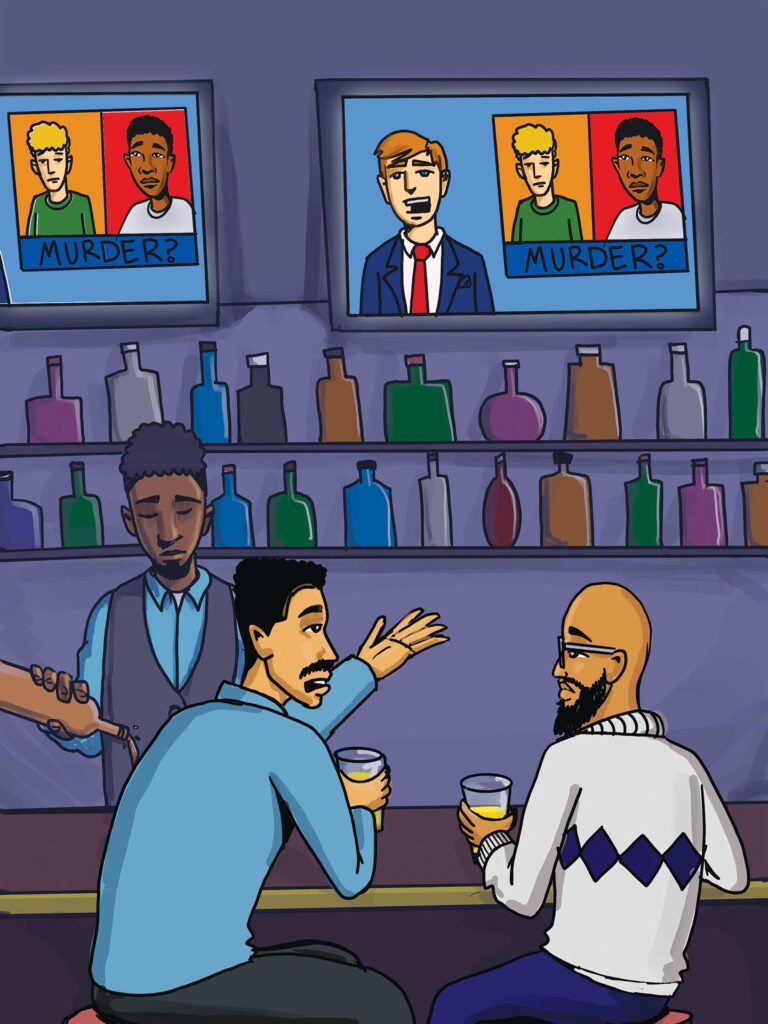
So here we are once again, looking at the death of an unarmed Black man at the hands of a white man. And once again, our justice system was slow to react when it came to holding accountable the white man for the seemingly senseless murder. It took multiple days and protests that stopped many subway lines in the New York City transit system cold.
For those of you like me who are wondering how this day could have gone so wrong, here is the basic scenario. On May 1, 2023, around 2:30 in the afternoon, Jordan Neely, a 30-year-old homeless black man, was riding the F train in New York City. According to police, witnesses said Neely was acting in a “hostile and erratic” manner, yelling that he was hungry and thirsty. Daniel Penny, a white 24-year-old ex-marine, approached Neely from behind and placed him in a chokehold according to a witness, Juan Alberto. He said the chokehold lasted for 15 minutes. The three-minute video he shot went viral and sparked protest.
It took the New York justice system almost two weeks to charge Penny with manslaughter.
Now, nobody has asked about Penny’s mental state during the incident. By all accounts, Neely did not outwardly threaten Penny’s life or well-being before Penny crushed Neely’s windpipe, causing his death. It took police officer Derek Chauvin nine minutes to murder George Floyd by choking him.
But if one took a race-neutral approach to this tragedy, one would ask if this was a case of mental desperation for both parties. For Neely, it was years of homelessness, untethered from family and struggling with hunger.
It is now known that Penny was an infantry squad leader in the Marine Corps and had taken advanced assault training. He left the service in 2021, and perhaps he was also feeling untethered, detached and antisocial sitting in that subway car. Combat, whether actual or in training exercises, can lead to distress or even post-traumatic stress disorder, which is marked by extreme worry, re-experiencing of events and avoidance of certain situations.
Photos on an AllTrails website profile that appears to belong to Penny suggest he is an avid hiker attuned to the great outdoors. Being on the crowded subway in one of the loudest cities in the country is the exact opposite of the great outdoors he craved. Having a man acting erratically, screaming randomly at passengers in a cramped subway could have been a triggering moment for Penny.
In the recording of the incident, a passenger on the train can be heard warning Penny, “You don’t want to catch a murder charge.” A man can be heard saying, “You got a hell of a chokehold, man.” An onlooker alerted Penny that Neely had defecated, a sign he was dying, and said, “You’re gonna kill him.” But Penny did not release him.
We need to take an unflinching look at the way we treat the most vulnerable members of our society, whether that be the poor and homeless or military veterans. We must examine our country’s international reputation. Is it a purveyor of democracy and justice or something much darker? America’s propensity to solve conflicts through war and aggression and to accept nothing less than total submission from our opponents was manifested on that subway train.
The Coalition for the Homeless has stated that homelessness in New York City has reached the highest levels since the Great Depression. We here in Boston know all too well about the growing homeless problem. At the Mass Ave. and Melnea Cass Blvd. intersection, for years there has been only intermittent success in providing assistance to our homeless population, despite the focus of state and local lawmakers. Homeless single adults have higher rates of serious mental illness, addiction disorders and other severe health problems.
A similar situation exists with those who serve and have served in the military. Mental health issues are rampant in the military, with a higher suicide rate than the general population. A 2014 study in the JAMA Psychiatry journal found nearly 1 in 4 active-duty members showed signs of a mental health condition.
So it is reasonable to question the decision to release a man who murdered someone in cold blood without cause. Perry should’ve been detained immediately and evaluated for his mental condition instead of being sent home.
We as a country need to treat all members of our society with more respect and patience. The homeless population needs a real path to long-term residences and treatment. Men and women who return from armed service face challenges many of us can’t even imagine. We owe it to them and the rest of society to provide them with the mental health services they need. If not, this type of tragic event will happen again and again.







